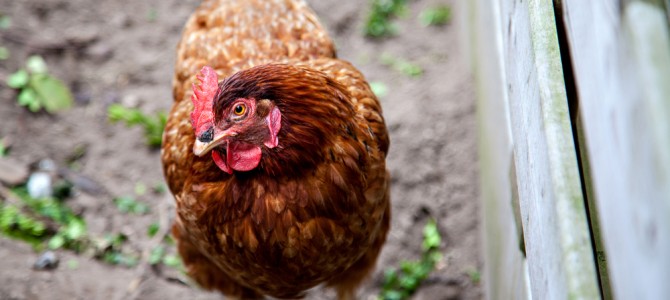
Walking through the aisles of a supermarket, consumers imbibe a healthy dose of agrarian imagery: red barns, roaming animals, green pastures, and sunshine. These marketing ploys attempt to entice lingering sentiments of a bygone era in which man and animal lived side by side. However, contrary to the idyllic imagery tacked on the packaging of our meat, eggs, and dairy, the modern farm animal is a product of a laboratory—not a farm.
More than 80 percent of animal food products come from concentrated animal feeding operations, otherwise known as factory farms. The very term “factory farm” indicates a fundamental shift in man’s understanding of animal husbandry. No longer are farm animals considered members of creation, but instead are regarded as products of an industrial economy. As with most sectors of industry, efficiency is revered as the supreme virtue.
Thus, the primary goal of a factory farm is to genetically engineer, breed, kill, process, package, and distribute protein in the quickest, most cost-effective manner. Although this industrial model has been applied towards farm animals of all kinds, few creatures have it worse than the egg-laying chicken.
Turning Animals Into Machines
The modern egg-laying chicken is a product of a laboratory, not a farm. Primary breeders are artificially inseminated in a sterile environment where their eggs are incubated until they hatch. Upon hatching, the newborn males are immediately killed, since they are unable to lay eggs. The quality and quantity of meat male chickens produce makes their continued existence economically unviable.
Female chickens are immediately debeaked and sent to a growing house, where they will mature for 20 weeks until they are shipped to an egg-laying facility. Upon arriving at the egg-laying facility, four or five hens are confined to a small wired cage. The hens are hardly able to reposition their bodies, much less walk, and although they are unable to extend their wings, they attempt to do so. It is not uncommon for portions of their bodies to be bald and perpetually bleeding. Because they sit and stand above containers that collect their feces, the hens must be administered antibiotics to prevent disease.
Denied access to sunlight, fresh air, and the freedom to roam green pastures, their creaturehood is rejected, as they are no longer afforded the environment and lifestyle proper to their nature. As Michael Pollan observes in “The Omnivore’s Dilemma,” “To visit a modern Concentrated Animal Feeding Operation is to enter a world that for all its technological sophistication is still designed on seventeenth-century Cartesian principles: Animals are treated as machines– ‘production units’–incapable of feeling pain.” A review of the unsettling images in Mercy for Animals’ undercover videos quickly confirms his claim.
Wendell Berry says treating animals as machines is consistent with the worldview of industrial man. In his essay “The Agrarian Standard,” Berry issues the following indictment of this inhumane mindset:
To the industrial mind, a machine is not merely an instrument for doing work or amusing ourselves or making war; it is an explanation of the world and of life. Because industrialism cannot understand living things except as machines, and can grant them no value that is not utilitarian, it conceives of farming and forestry as forms of mining; it cannot use the land without abusing it.
We Have a Responsibility to Care for Creation
Christian tradition establishes man’s preeminence of the created order. Formed from the dust of the ground, man’s oldest ancestor was made imago dei. God blessed the universe and its contents, and gave them to man as gifts. As the beneficiaries of these gifts, God instructed man to be fruitful, multiply, replenish the earth, and subdue it. He was called to exercise dominion over creation and faithfully steward its fruits.
In light of this dominion mandate found in the book of Genesis, consuming animal products is certainly within man’s prerogative. However, subjugating farm animals to the whims and will of industrial man is an abdication of man’s responsibility to the Creator. The grotesque images found on the factory farm do not reflect faithful stewardship of the created order. These images, instead, reflect selfish domination.
The vast majority of civilization, although divorced from agricultural production, is not absolved from responsibilities for land, animals, and the men and women who care for them. Although they might not actively participate in maltreating the created order, their economic activity might nonetheless support such inhumane endeavors. It would be prudent for those who affirm the Christian faith and adhere to conservative principles to contemplate their participation in a food system that undermines their understanding of the reality and nature of our world.
Economic transactions are not morally neutral. The market provides options. Options require decisions. Decisions end in actions. And actions have consequences. It would do Christians and conservatives well to consider these consequences.









